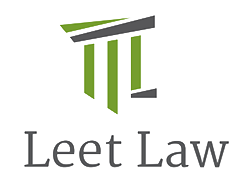
Power of attorney (POA) allows a person (the principal) to authorize a named representative to act on their behalf in various legal, financial, health, and tax matters. Under the law, the named representative (the agent or attorney-in-fact) has a fiduciary duty to the principal and must act ethically in the principal’s best interests. An agent who misuses their authority or acts contrary to the provisions of the powers of attorney document may face legal repercussions.
At Leet Law, we provide comprehensive guidance and reliable advocacy to clients in estate planning and power of attorney-related matters. Our practiced California estate planning attorneys can investigate the agent’s conduct, identify any abuse or misuse of power, and explore your options to limit or revoke the POA. We’re proud to serve clients across San Jose, Palo Alto, Oakland, San Francisco, and the rest of the Bay Area, California.
The Role of the Power of Attorney
A power of attorney (POA) is a written document that allows a person (the principal) to designate legal authority and power to another person (the agent or attorney-in-fact) who will act on their behalf in certain matters.
Should the principal become unavailable, critically ill, incapacitated, or otherwise unable to make such decisions by themselves, the named agent can act on their behalf in crucial legal, health, property, tax, or financial-related matters.
Power of Attorney Abuse
Power of attorney abuse occurs when an attorney-in-fact misuses the authority granted to them by the principal. This can include stealing money, falsifying financial records, transferring assets, or using the principal’s finances for personal gain.
Examples of Power of Attorney Abuse
Here are some examples of actions that may be considered abuse or misuse of power of attorney:
-
Spending or stealing money from the principal’s account.
-
Transferring the powers to someone else illegally.
-
Taking advantage of the principal’s mental incapacity.
-
Coercing a person into creating a power of attorney document against their will.
-
Appropriating the principal’s property and assets.
-
Forging the principal’s signature to create a POA document.
-
Using POA to take decisions after the principal’s demise.
-
Taking advantage of the principal’s unavailability or inability to take decisions.
-
Selling the principal’s information or personal details online.
If you suspect power of attorney abuse, you should reach out to a trusted estate planning attorney straightaway. Your legal counsel can evaluate every detail of your unique situation and determine whether you have a legal claim against the agent.
Legal Claims for Power of Attorney Abuse
Here are some legal claims that may exist when an agent misuses or abuses a power of attorney:
Breach of Fiduciary Duty
As mentioned earlier, the agent owes a fiduciary duty to the principal and must act according to the instructions of the POA document. If the attorney-in-fact violates their expected duties and responsibilities, the principal may be entitled to file a breach of fiduciary duty lawsuit against them.
Conversion
Also, the principal may file a conversion claim against an agent that steals or unlawfully takes their property in order to deprive the principal of the use of such an item. In order to establish a conversion claim, the principal must show that the agent used the principal’s assets against their ownership rights.
Elder Abuse
In addition, if the agent takes advantage of an older principal with physical or mental impairments, they may have an elder abuse claim against the agent. If found guilty, the attorney-in-fact may be subject to various civil and criminal punishments.
Fraud
The principal may also be entitled to take legal action against an agent who lied about a situation that made them take action or act against the principal’s wishes.
Limiting/Revoking a POA
Additionally, among the options to prevent or mitigate misuse of power of attorney is by limiting or revoking the POA. A limited POA only grants the agent the authority to act on the principal’s behalf on specific matters as indicated in the document.
Alternatively, the principal can revoke the POA once they suspect misuse or abuse of power. Revoking a POA automatically removes the agent. A dependable lawyer can guide you through the legal process involved and help you navigate crucial decisions.
Turn to Leet Law for Help
Power – if left in the wrong hands – can be intoxicating. A dishonest agent can convert property, steal money, or act contrary to the principal’s wishes. If you believe that an agent is misusing the power granted to them or not acting in your loved one’s best interests, you should speak with a seasoned estate planning attorney immediately for proper guidance.
At Leet Law, we have the diligence and expertise to advise and direct clients in complex matters involving misuse or abuse of power of attorney. As your legal team, we can conduct a thorough investigation of the agent’s actions and determine the best cause of action if abuse of power is discovered. Whether you want to limit or revoke a power of attorney, our reliable legal team can guide you through the processes involved and help protect your loved one’s best interests.
Contact us at Leet Law today to arrange a consultation with a practiced power of attorney lawyer. Our experienced attorneys have the personalized guidance and dedicated advocacy you need to make intelligent decisions about your specific situation. We’re proud to serve clients across San Jose, Palo Alto, Oakland, San Francisco, and the rest of the Bay Area, California.
